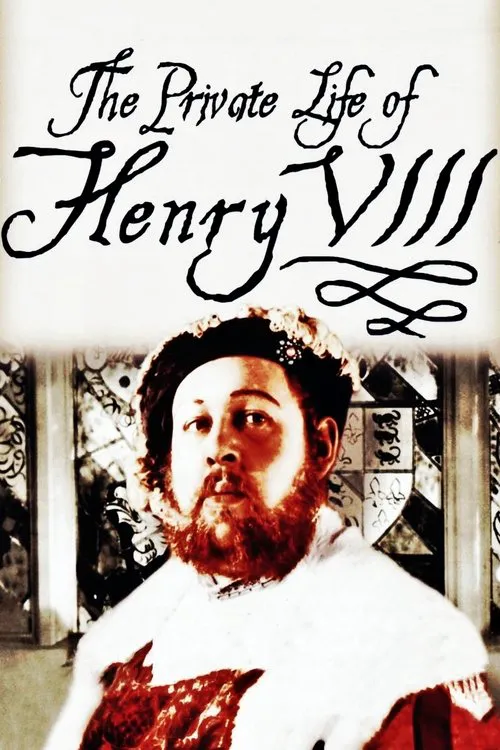The Private Life of Henry VIII

Plot
King Henry VIII is a towering figure in English history, a monarch infamous for his voracious appetite, both for power and for women. The Private Life of Henry VIII, directed by Alexander Korda, brings this larger-than-life ruler to the big screen, showcasing the tumultuous relationships that defined his life. The film begins on a lavish note, introducing King Henry VIII, played by Charles Laughton, as a robust and indulgent sovereign, reveling in the luxuries of his court. Married to Catherine of Aragon, the King's first wife, Henry's desires soon turn towards his second wife, Anne Boleyn (Merle Oberon), the charming and intelligent lady-in-waiting to Catherine. Henry's infatuation with Anne is all-consuming, and he becomes determined to make her his queen. Anne Boleyn's refusal to become Henry's mistress, insisting on marriage, sets the scene for a drama-filled courtship. Henry's advisors, including Thomas Cranmer (Robert Newton) and Charles Brandon (C. Austin), warn against marrying a commoner, but Henry is resolute in his pursuit of Anne. The film captures the intensity of their romance, showcasing the King's all-consuming passion for Anne, which ultimately leads to the English Reformation, as Henry seeks to annul his marriage to Catherine. As the drama unfolds, Henry's fixation on Anne only intensifies, but his love for her is doomed from the start. Anne's wit and intelligence make her a formidable partner, and she refuses to settle for anything less than marriage. However, Anne's position as queen is tenuous, as Henry's desire for a male heir grows. The tension builds as Henry becomes increasingly disenchanted with Anne's failure to produce a son, setting the stage for the tragic events that unfold. The film's portrayal of Anne Boleyn's execution is both shocking and poignant. The scene is shot in stark contrast to the grandeur that has defined the film up until this point, emphasizing the tragedy of Anne's fate. The English monarch's brutal treatment of his wives is a testament to his ruthless pursuit of power, and The Private Life of Henry VIII does not shy away from depicting the darker aspects of Henry's personality. Jane Seymour (Ellaline Terriss), Henry's third wife, enters the scene as a more subdued and demure presence. The film suggests that Jane is more suited to Henry's tastes, providing him with a son, Edward VI. Her marriage to Henry is depicted as a happy, if somewhat unfulfilling, experience. The introduction of Anne of Cleves (Vivian Martin), Henry's fourth wife, brings a fresh dynamic to the film. Henry's marriage to the German princess is initially portrayed as a romantic and exciting prospect. However, as the reality of their relationship sets in, Henry becomes disenchanted with Anne's lack of passion and his advisors' failure to secure the German alliance they had promised. The film's portrayal of Henry's growing dissatisfaction with Anne is both fascinating and tragic, as it highlights the King's increasing reliance on his advisors to shape his desires. Throughout the film, Charles Laughton's portrayal of King Henry VIII is a triumph. He brings depth and nuance to the character, capturing the complexities of a man torn between power, lust, and duty. The film's supporting cast is equally impressive, with Merle Oberon delivering a memorable performance as the ill-fated Anne Boleyn. The Private Life of Henry VIII is a cinematic masterpiece that brings the drama and intrigue of the Tudor court to life. The film's portrayal of King Henry VIII as a flawed and multifaceted character humanizes him in a way that challenges the traditional narratives of history. By delving into the complexities of his relationships, both romantic and familial, the film presents a rich and compelling portrait of one of England's most infamous monarchs.
Reviews
Recommendations




